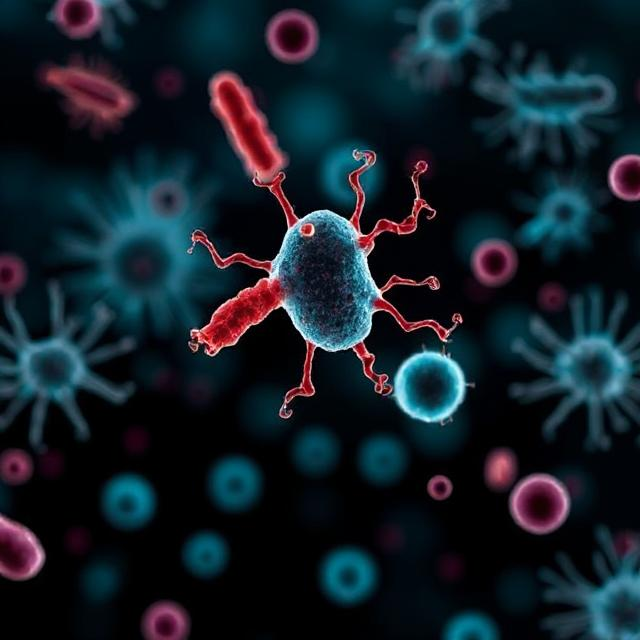What you eat can have a significant impact on the quality of your sleep. Certain foods can help you wind down and prepare for rest, while others may interfere with your ability to fall asleep or stay asleep throughout the night. Here’s a breakdown of the best and worst foods for a good night’s sleep, so you can make smarter choices before bed.
The Best Foods for Sleep
- Cherries (Tart Cherries)
Why they help: Cherries, especially tart cherries, are one of the few natural sources of melatonin, the hormone that regulates sleep. Consuming tart cherry juice or a small handful of cherries before bed may help increase melatonin levels and improve sleep quality.- Tip: Drink a small glass of tart cherry juice an hour before bed for a natural sleep boost.
- Almonds
Why they help: Almonds are a good source of magnesium, which plays a role in the regulation of the neurotransmitter GABA, promoting relaxation. Magnesium helps to relax the muscles and nervous system, making it easier to fall asleep.- Tip: A small handful of almonds (about 1 ounce) as an evening snack can help relax the body.
- Bananas
Why they help: Bananas are rich in potassium and magnesium, both of which help relax muscles and nerves. Bananas also contain tryptophan, an amino acid that is a precursor to serotonin and melatonin, further aiding sleep.- Tip: Enjoy a banana as a light snack before bed to help calm your body.
- Kiwi
Why they help: Kiwis are high in serotonin and antioxidants, which are beneficial for improving sleep. Studies suggest that eating kiwis before bed may help improve sleep duration and quality.- Tip: Eat one or two kiwis about an hour before bedtime to support better sleep.
- Turkey
Why it helps: Turkey is known for being rich in tryptophan, which helps boost serotonin and melatonin levels, both of which regulate sleep. Although it’s often associated with drowsiness after Thanksgiving meals, turkey can promote sleep when consumed in moderation.- Tip: Enjoy a small portion of turkey in your evening meal to encourage relaxation.
- Oats
Why they help: Oats are a great source of melatonin and are also rich in complex carbohydrates, which can help increase the availability of tryptophan in the brain. This can aid in the production of serotonin, a neurotransmitter that helps regulate sleep.- Tip: Try a warm bowl of oatmeal with a sprinkle of cinnamon or a few nuts as an evening snack.
- Chamomile Tea
Why it helps: Chamomile tea is known for its calming and sleep-promoting properties. It contains apigenin, an antioxidant that binds to receptors in the brain that may help promote relaxation and reduce anxiety.- Tip: A cup of chamomile tea about 30 minutes before bed can help you wind down.
- Leafy Greens
Why they help: Leafy greens like spinach, kale, and Swiss chard are rich in magnesium and calcium, both of which promote muscle relaxation and sleep. These nutrients also help regulate the body’s production of melatonin.- Tip: Incorporate leafy greens into your evening meal for a natural sleep aid.
- Greek Yogurt
Why it helps: Greek yogurt contains calcium, which helps the brain use tryptophan to create melatonin. Additionally, its protein content can keep blood sugar levels stable through the night, preventing early morning wake-ups due to hunger.- Tip: A small bowl of plain Greek yogurt with a drizzle of honey can be a relaxing pre-sleep snack.
The Worst Foods for Sleep
- Caffeine-Containing Foods (Coffee, Tea, Chocolate, etc.)
Why they hurt sleep: Caffeine is a stimulant that blocks the action of adenosine, a brain chemical that promotes sleep. Consuming caffeine too close to bedtime can interfere with your ability to fall asleep and disrupt sleep cycles.- Tip: Avoid coffee, tea, chocolate, and other caffeine-containing foods for at least 6 hours before bed.
- Alcohol
Why it hurts sleep: While alcohol can make you feel drowsy initially, it disrupts the second half of the sleep cycle. Alcohol affects REM sleep, leading to more frequent awakenings during the night and poor sleep quality.- Tip: Limit alcohol intake, especially in the hours leading up to bedtime.
- Spicy Foods
Why they hurt sleep: Spicy foods can increase your body temperature and cause acid reflux or indigestion, making it difficult to fall asleep or stay asleep. The discomfort from heartburn or digestive issues can keep you awake.- Tip: Avoid spicy foods in the evening or opt for milder seasonings.
- Heavy or Fatty Meals
Why they hurt sleep: Heavy meals that are high in fat or protein take longer to digest, which can leave you feeling uncomfortable and disrupt sleep. Rich, fatty foods can also lead to acid reflux and indigestion.- Tip: Avoid large meals 2-3 hours before bed to give your body time to digest.
- Sugary Foods and Drinks
Why they hurt sleep: High-sugar foods can cause spikes and crashes in blood sugar, which can disrupt your sleep. Additionally, sugary snacks can increase the likelihood of waking up in the middle of the night due to hunger.- Tip: Avoid sugary snacks and drinks (including sodas, pastries, and candy) before bedtime.
- Greasy or Fried Foods
Why they hurt sleep: Greasy, fried foods are not only hard to digest but can also increase the likelihood of heartburn or indigestion. These foods may lead to discomfort and disrupt your sleep.- Tip: Skip the fries and fried chicken at dinner for a more sleep-friendly meal.
- Energy Drinks
Why they hurt sleep: Energy drinks are packed with caffeine and other stimulants that can keep you awake for hours. Even if consumed in the afternoon, these drinks can disrupt your sleep cycle.- Tip: Avoid energy drinks, especially in the late afternoon and evening.
- Citrus Fruits
Why they hurt sleep: Citrus fruits like oranges, lemons, and grapefruits are high in acidity and can cause acid reflux or heartburn if eaten too close to bedtime. This discomfort can prevent you from falling asleep or cause waking during the night.- Tip: Enjoy citrus fruits earlier in the day and avoid them before bed.






